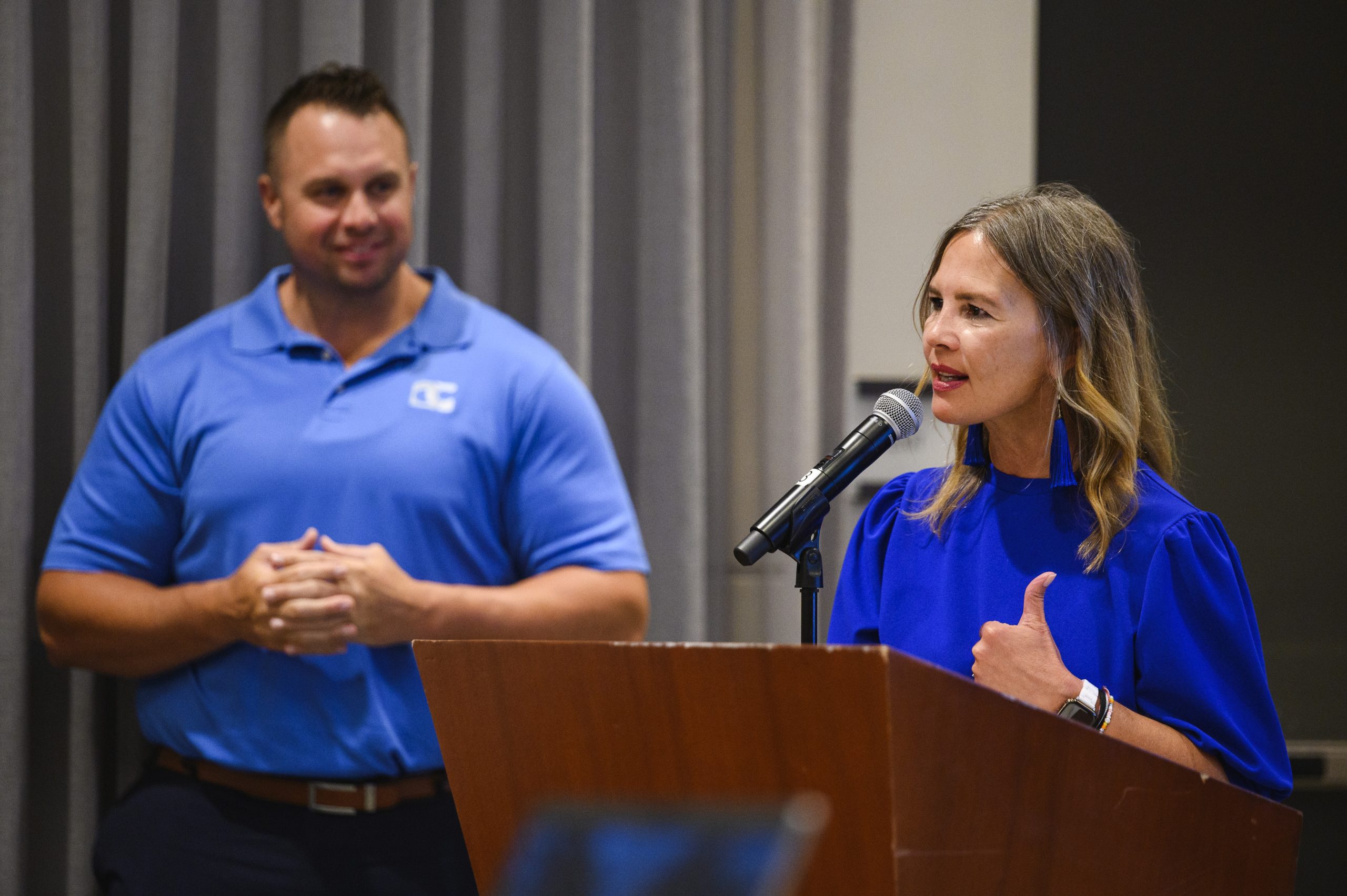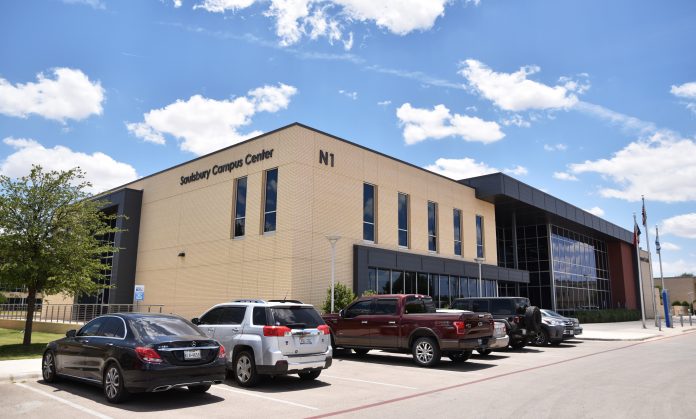To reflect its practice and its philosophy, Odessa College has revised its policy for probation and suspension for students.
Students may face academic challenges due to a variety of circumstances and those result in poor performance, which may compromise their ability to get financial aid — whether that’s federal aid or scholarships.
Odessa College, University of Texas Permian Basin and other institutions received a bequest from the estate of the late Elizabeth Koonce. OC is using the funds for student scholarships.
“We were fortunate enough to identify some scholarship dollars through the Koonce donation that we received,” Vice President for Student Services Kim McKay said. “The only parameters that she set for the distribution of those dollars is that it go to students. We were able to take some of that money and allocate it to students that maybe needed a second chance or another start. We call it the Koonce Scholarship, but it really is what we call the Restart Scholarship giving students funding so that they can bounce back from those life circumstances that may have resulted in poor academic performance.”
When OC made that decision, they knew they needed something to hold students accountable so they didn’t continue to spiral and perform poorly in the classroom, McKay said.
“Students enter into an academic intervention agreement, regardless of whether they’re receiving Koonce dollars or not. If they fall into a probation status, then they meet with an Academic Success Coach, a professional advisor that is trained to support students who need academic intervention,” she said.
”Sometimes it’s funded, sometimes it’s not. Financial Aid allows students who have not met Satisfactory Academic Progress an opportunity to receive aid through an appeal process and it’s institution-led. Many of those students still have an opportunity to receive federal financial aid and get back into satisfactory academic standing. But not all of them do and those are the students that are awarded the Koonce dollars, regardless of how they’re funded, or if they’re funded they all enter into an academic intervention agreement,” she added.
“The college’s practice wasn’t aligned with the actual OC Board of Trustees policy because, nor was it aligned with the catalog because the way that we wrote the operating protocols was to allow students to be on probation two consecutive semesters before they had to separate from the college, which is the common definition for suspension,” McKay said.
Suspension or separation is sometimes what students need.
“They need to separate, reset, refresh, sort of reflect. … When they’re ready to come back, we’re ready to take them back. But the policy and the catalog required students after not meeting the Satisfactory Academic Progress standard set in probation, that they automatically go in suspension, so we submitted a recommendation to have the policy changed so that a student could be on probation for two consecutive semesters. … If they meet the terms of the academic intervention agreement, and they return to a 2.0 then they’re moved into Satisfactory Academic Progress — good academic standing. If they don’t, then they are transitioned to suspension. And so we just asked for the board’s support and changing the policy so that it matched our practice, which we think is the best thing for students,” McKay said.

She added that most students that want to get out of it do.
“It’s the students that don’t follow through with the intervention agreement that struggle the most because the agreement has things in there that are designed to facilitate their success. It includes meeting with a life coach, proactive or preventative tutoring, instead of tutoring in crisis … If a student commits to doing those things, they will more than likely be successful. If a student doesn’t commit to those things, they have a harder time getting themselves out of that probationary situation,” McKay said.
For federal financial aid, a 2.0 GPA is considered Satisfactory Academic Progress. Many scholarships require a 2.5 and that is sometimes unattainable for these students.
“Our goal is … to get them back into a situation where they can receive federal financial aid, even if we have to help through our Restart Scholarship for one semester. They may never get back to to the traditional scholarships as we know it,” McKay said.
The majority of students are quite motivated to get back to Satisfactory Academic Progress.
“Most students are so grateful that the Success Coach that works with those students calls and say, we want you to keep going, or we want you to come back because the embarrassment is real. They think that they don’t belong here and that there’s not a place for them any longer. Just that communication gives them hope, and lets them know that we still are working with them and sometimes we’re working for them to ensure that they can complete their degree,” McKay said.
McKay added that OC is an open access institution that believes in second chances.
“Everybody has a right to pursue higher education and we’re going to do whatever we can, if they’re willing to work for it, to help them achieve that particular goal. We don’t see a whole lot of the traditional higher education stigma that maybe existed when we were in school. Look to your left, look to your right, the person next to you is not going to be here. … That is not how we approach this. We want these students to succeed and we want them to move on to gainful employment so that they can support their families for generations,” she added.
OC also has a lot of first-generation students who may not have any frame of reference on how to navigate college.
“They also a lot of times have families that don’t understand that education beyond K through 12 has a price and they can’t quite figure out how to afford it. Our ability to pick those students up that may have not performed well their first semester, or their second semester, or even their last semester, by giving them an option to enter into an academic intervention agreement, and also access funding is going to make a difference in their completion,” McKay said.
Two of the main barriers for students who stopped out is finances and opportunity.
“There are a lot of systems in place in higher education that take that opportunity away if you’re not performing well. We’ve made a conscious decision to not take it away and give you an opportunity to continue,” she added.
The other change that was made to the policy was adding to the definition for prior learning.
“If you have a student that may have completed a workforce certification in welding, but it wasn’t a credit program, but (the student is) now entered into a credit program. They may not have to take the intro to welding class because they’ve already demonstrated the competency. That’s a big part of upskilling and reskilling a workforce that has been trained on the job to give them credit for what they’ve experienced, while still helping them get a degree,” McKay said.




